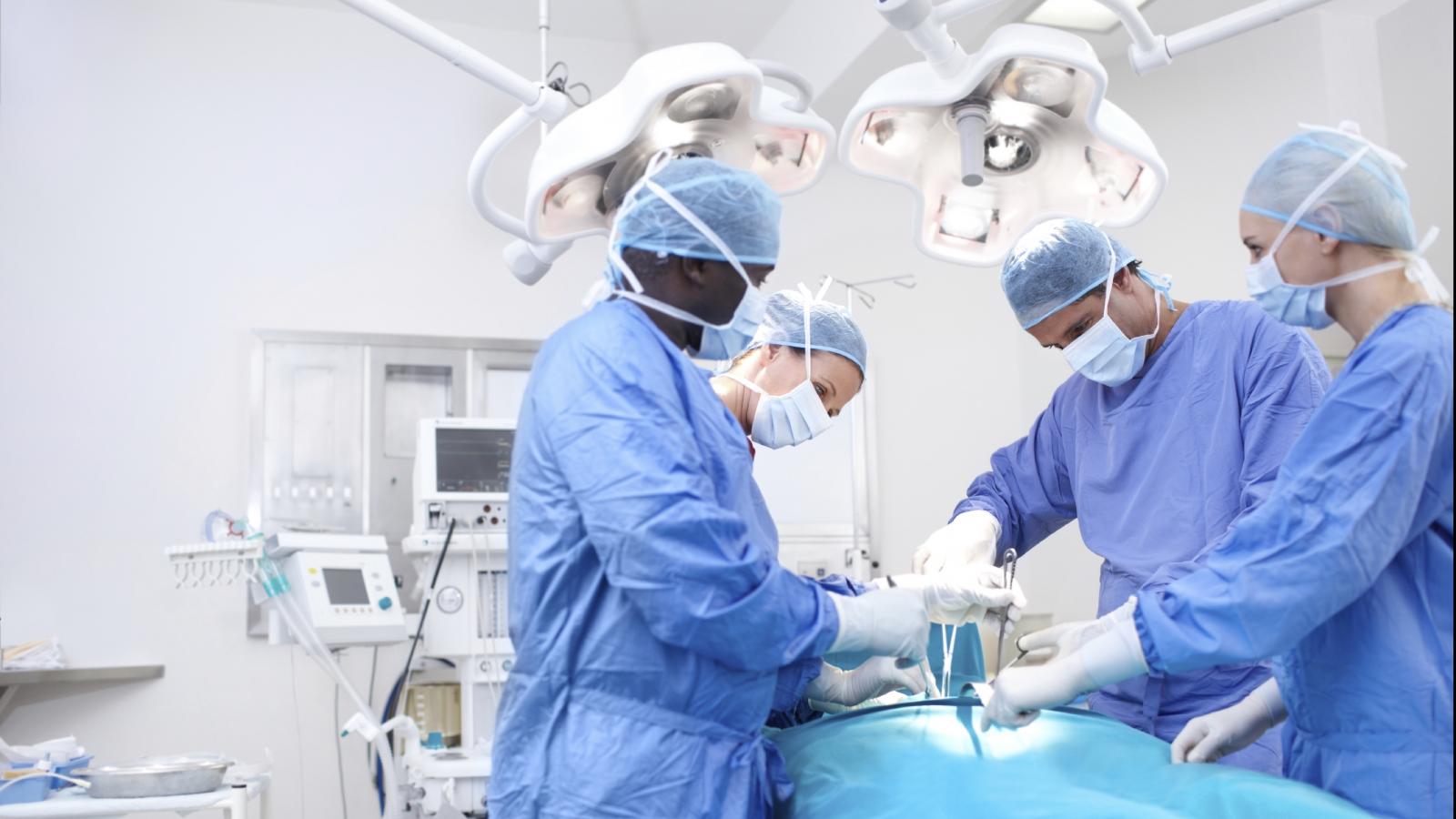Surgery for thyroid cancer

The aim of surgery is to remove the cancer and the area close to it. Surgery is the most common treatment for thyroid cancer. There are different ways of doing surgery for thyroid cancer. The best type for you will depend on the stage of your cancer.
Types of thyroid surgery
- Total thyroidectomy: Removing the entire thyroid gland. A small cut in the centre of your neck is usually made to get directly at your gland. If any tissue is left behind after surgery, you might need radioiodine therapy later.
- Lobectomy or partial thyroidectomy: Removing just one lobe of the thyroid.
Your surgeon might need to remove some of the tissues in the area around the thyroid gland if you have anaplastic thyroid cancer or if the cancer has begun to spread outside the thyroid gland.
- Lymph node removal: Your surgeon might remove some or all of the lymph nodes close to your thyroid gland during your thyroid cancer surgery. These can be examined under a microscope to see if cancer has spread to them or not. Removing the lymph nodes is called a lymphadenectomy or a neck dissection. As many as possible of the nodes are removed to prevent the cancer from coming back.
Side-effects of thyroid surgery
General side-effects
With all surgeries there is a small risk of bleeding and infection. Read more about general side-effects of surgery.
Hoarse voice
Sometimes there may be slight damage to the nerves to the voicebox (larynx). This can make your voice sound hoarse and weak. In most cases it a temporary problem, but it can be permanent for a very small number of people.
Fall in blood calcium levels
This is called hypoparathyroidism. You will have regular blood tests to check the calcium levels in your blood. If needed, your doctor will prescribe calcium, and possibly vitamin D, for you until the levels are normal again. Let your nurses know if you have muscle cramps, numbness or tingling in your hands, feet or around your mouth, as this can be a sign of low calcium.
Tiredness
It is common to feel tired or weak for a few weeks after your surgery. The time it takes to heal is different for everyone.
Neck stiffness
You may experience some neck stiffness for a few days to weeks after your surgery. Your doctor will prescribe painkillers to help with this.
Scarring
You will have a small scar across the front of your neck just above your collar bone. The scar will look red or dark at first but will fade with time. It is usually very neat and hardly noticeable.
Thyroid hormones
After surgery, you will no longer have a thyroid gland to make the hormones your body needs, so you will need to take thyroxine tablets. This is called thyroid hormone therapy or hormone replacement therapy.
For more information
Phone
1800 200 700



